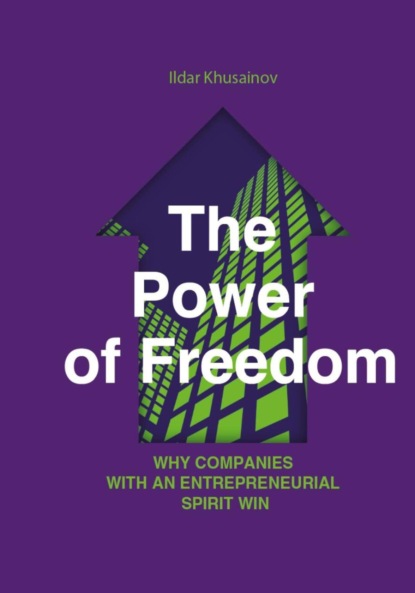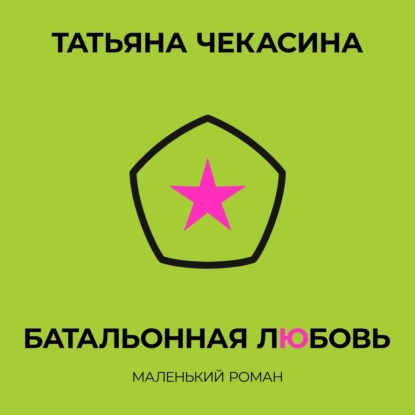The power of freedom

- -
- 100%
- +
Recalling that incident, I think about the fragility of life. Just a few seconds could have changed everything. If something had gone wrong back then, there would be neither my company nor this book. Everything in this world is uncertain, and we exist on the edge between great opportunities and risks.
I want to emphasize that I truly love and respect my parents. They played a huge role in my development. I always try to do everything possible for them. The more I live, the more I reflect on my childhood, and the grievances and pain are replaced by relating and the realization that my mom and dad have always loved me and still do, and I reciprocate that love. When I was 15–16 years old, my relationship with my father improved, and he did a lot to help me become who I am today. He has always been the person I could rely on more than anyone else in this life! Yes, we are very different, but we have a powerful spiritual connection. And my mum is for sure the person who shaped me as an individual. I’ve come to understand how important it is to appreciate our parents. If I meet someone who, for some reason, has distanced themselves from their parents, I can spend hours explaining why it’s so important to get on with them. Speaking of the fragility of the world, no one knows when everything might change or come to an end, so it’s crucial to value what we have right now. This applies to both personal life and, surprisingly, the economy. Bad times usually come unexpectedly, and people start lamenting over how good it was before. The essence of our world is constant change – we must learn to embrace it.
And if the world is so changeable and unpredictable, one might decide that it's better to live for today and not make plans. However, my life principles are different:
1. Long-term thinking. I always try to look to the future and prefer delayed gratification over instant one. I am willing to wait, endure, and put in any effort for future success.
2. Deep understanding. I am convinced that if you want to achieve a high quality result, you need to work through the whole process, and every little detail. Nothing good happens by chance. Any successful product is the result of a well-thought-out strategy.
3. The triumph of justice. I believe in justice and that if you do something good and right, it’ll serve you in the end. It’s in our nature to justify our actions, but our conscience, sense of shame, and understanding of morality help us avoid mistakes.
4. Minimalism – a very important principle for a businessman. Many people start splashing out money as soon as they get some profit. I believe that rational spending contributes to long-lasting success and sustainable business development.
Things that happened to me when I was a child taught me to be responsible and organized. I never expect something good to happen without a reason – it’s not pessimism, but rather realism that protects me from disappointment. Most people who face different problems because their expectations are far too high. I don’t spend a lot of money on myself, even though I am obviously a wealthy person now. Since I was little, I have learned that happiness has nothing to do with prosperity.
This principle of mine isn’t popular, I should say. During the early stages of the business, I had a serious dispute with my co-founders about how to use the earned money. I insisted on reinvesting it into further development of the company while they leaned towards spending it. I was perplexed about how we would grow our venture, but nobody seemed to hear my arguments in favor of expanding the business. The disagreements led to conflicts, and even my mother sometimes supported the idea of splashing out, believing that after all the difficulties we’ve been through we deserved the right to a decent life.
I was convinced that for a businessman, it is important to strive for success and to achieve a certain status in the professional sphere, and that a penchant for spending a lot along the way can be detrimental. One must find a balance between personal desires and the needs of the business. For example, my car isn’t the most expensive one among the employees of my company. For me, the true sign of success in business is not what kind of car a person drives or how much money they spend, but how they impact the lives of others, how they help their clients and employees grow and develop. Only this is memorable and has true value. Ten years will pass, and you won’t remember what car you drove or what suit you wore in the mornings, but you’ll never forget and will always be proud of your achievements.
Balance is equally important in all aspects of life: medicine in the right dose can heal, but in excess, it becomes poisonous. In real life There is no clear division between what is “right” and what is “wrong”; everything depends on the boundaries we set for ourselves. Understanding where these boundaries lie and being able to respect them contribute to building a stable and effective system, whether in personal life or business.
Chapter 2. About Self-education
Over time, I began to rethink many things, and before discussing how to cultivate valuable qualities for life and business in others, I believe it's important to share how I developed these qualities within myself. Reflecting on my childhood, which undoubtedly had both joys and challenges, I realize that my journey as an entrepreneur began back then. I transformed and nurtured many personal qualities in myself; however, the most important aspect, in my opinion, is how I changed my attitude towards understanding my significance. I am convinced that the more a person recognizes their importance and value to their work, the better they perform.
When I was 23–25 years old, I did not realize my own significance as the head of the company. Let me give you an example. In 2007, there was an event that I’d mentioned in my first book. I went to a football tournament in Neftekamsk, took the team with me, and spent quite a bit of money over two weeks. At that time, there was no opportunity to work online. Basically, I didn’t have the right to leave the company for such a long period just to play. Now I understand how critical each day and each hour is, and how important the role of a leader is. But back then, I just wanted to participate in the tournament. And we won! The prize for first place was 160,000 rubles, which fully covered our travel expenses. We even gave part of the money to the team. However, I disapprove of the decision I made back then.
In 2023, the veteran football championship of Russia took place. Any athlete will relate: when you get the chance to play for Tyumen region at a high level, you start considering the event special. We reached the finals, where we competed against players who had previously played for the national team and in the Champions League. We took second place – the first time for Tyumen region in 80 years. It was amazing! Two similar events, and my attitude towards them was completely different. In 2023, I spent a negligible percentage of our free funds to participate in the competition, whereas in 2007, it was 5%. I didn't stop working – I attended meetings and conferences – and I don't consider that time wasted. I am convinced that the head of a company must always recognize their significance and prioritize their business. By 2023, the company was quite large, I had established online management processes, and participating in the competition was a completely reasonable action. In 2007, I did not think quite the same yet. Recognizing our own significance makes us more responsible and effective both in sports and in business.
At every stage of a career, the better you understand your significance to the business, the more effectively it develops. However, many entrepreneurs face a common problem: they try to separate themselves from their work, which is impossible. It's like in the movie "The Mask" – the mask becomes a part of you. In reality, an entrepreneur cannot separate themselves from their business, no matter how hard it may be to admit. Not until ten years passed had I realized it myself. I thought that if the business shut down, I could just do something else. But it doesn’t work that way: the business is a part of you, and you are a significant part of the business, and sometimes it’s hard to accept that.
Understanding one's significance in a company and the responsibility that comes with it is extremely important. This is connected with the internal motivators of each individual. For example, socially motivated people seek for opportunities to communicate and interact with other people, so different processes are important to them. Those who are results-oriented, the "achievers," want their business to be large-scale and well-known. There are also those for whom money is a priority. Monetary motivation is the simplest; it is easiest to manage people of this type, whereas managing "achievers" is the most challenging. They want to work only in large and successful systems and strive for significant positions. Such individuals are drawn to entrepreneurial culture, i.e. its principles, ethical norms, and traditions because it offers them exactly what they need. If you can create such a culture, these people will come and stay for a long time.
Let’s move on to what I’ve learnt about the 4 key principles that will help every entrepreneur enhance their significance and find their place in the system:
1. It's important to realize your connection with your business. Ask yourself, "What do I give to my business, and what does it give me?" I recommend taking some time to have a conversation with yourself to get an honest answer to the question: "Why do I need this business?" If the answer is simply "for the money," it might be worth reconsidering, because you can't build something great just for money.
2. If your motivation is just a pursuit of being busy, it's worth considering why is that. This is also a questionable type of motivation that is unlikely to lead to significant achievements.
3. If the goal is to impress your friends or acquaintances with how cool you are, this may work for a while, but it won't lead to long-term success.
4. The best type of motivation is when you dedicate your life to your business, genuinely love it, and are willing to do more for it than for your loved ones. Only if you are sincerely attached to your work do you have a chance to achieve real success.
If I think back to 2005–2006, when I was 26 years old, my life looked like this: I was working, studying, and could afford to go to the gym at 3 p.m. There were times when I could put something off for five months, thinking, "It can wait, it's not a big deal." I didn't realize how much I could do and I was afraid to communicate with partners. I started my business in 2000, and for the first five years, I didn't meet a single developer or banker because I didn't understand how important such meetings were. The thing is, our business depends on partnerships, but initially, this wasn't obvious to me: I thought there was an internal system, and it was enough to make things right within it. It took me some time to understand that modern business can’t work without external integration, interactions, and good connections.
After being a manager for 25 years, I can say that the first thing to do is to merge with your business. If you don't do this, you won't achieve success. Initially, I didn’t feel a strong passion or drive for business. From 2000 to 2008, I was like most people: I went to work and did what I had to do. I was involved, but only because it was necessary. The only thing I aimed at was making money. In 2008–2009, a lot changed, and I began to fall in love with the business. I started to think of it as my baby. I got a strong feeling that we could change the entire real estate sector, and our company should be a leader in it. However, at that time (2009) we were not among the 50 largest real estate companies in Russia. By the end of 2024, we became the top company in Europe and seventh in the world by business volume. And all of this happened in just one decade.
When my attitude to work changed, I started working until ten in the evening. When something didn’t go well, I literally felt pain in my chest. After 2011, the whole new period of my life began when I realized that I and my company "Etagi" were one and the same. I realized that I wanted to dedicate my entire life to the development of this company. There were many challenges ahead, and I am sure that the readers of this book will understand that my journey was not easy.
I haven’t noticed how my business gradually took over my life. Work became my daily focus, and I put my afternoon workouts on hold – a situation I can’t relate to at all nowadays. I don’t know what would have had to happen back then for me to prioritize my workout over work. With each passing day, I felt more and more the energy that you get from teamwork and responsibility. I realized that managing the company is my main calling, and I cannot let my people down. Many people think that I work like a robot now, but that is so not true.
My old friends, who knew me when I was 15 or even 22, would probably be surprised to see me now. A lot of things have happened in my life. I remember when I was 19, my friends and I were driving to Yarkovo to celebrate New Year when we were stopped by the police. My friend, who was tipsy, was driving, while I, a completely sober person, was sitting in the back seat with a girl. We quickly swapped places and the police didn’t notice this. But for some reason they thought we were both drunk. I tried to explain that I don’t drink at all, but at the same time my friend started resisting and refused to get out of the car. In the end, we were arrested and taken to a detention center. They released me quickly, and I stood up for my friend. I told the officer, “Listen, my friend will sober up and apologize. Please consider that we are young, only 19, and this is our first time driving a car. Haven’t you ever been young?” He took pity on us and let us go. I bought him a big bottle of beer to show how grateful I am. This is just one of many stories that now seem unbelievable.
Why am I sharing these? I want my book to be as honest as possible. Some may think that I've always done everything right, but it's important for me to show how things really were. The problem with many books is that events are presented from one perspective, while many important details are left out. I want to avoid that mistake. I also want to share how difficult my personal transformation was and the changes I went through.
1. I started reading a lot. My mum has always told me that I don’t read enough.
I read very few books from the school program since I preferred studying Maths, Geography and History. I wasn’t into fictional books, although I really enjoyed reading detective stories. I read everything Rex Stout and Arthur Konan Doyl had even written. The only book on the syllabus that I still remember was ‘Fathers and Sons’ by Ivan Turgenev. My mum asked me, ‘Ildar, why don’t you read more?’ I answered, ‘Mum, I know enough’. In the early years of my career from 2000 to 2005–2006, I dragged this idea into my adult life, and I sometimes missed the events; I thought I knew everything. I rarely asked other people for their opinions. I was just like most young ambitious and too quick to judge, and that led to the certain outcomes. I didn't attend conferences for a long time and didn't recognize my potential, not realizing that some push was needed for its development. Potential doesn’t activate on its own. Now, looking back, I can definitely say that many people do not realize that their potential is truly limitless, that they are actually rough diamonds. They just haven't learned how to polish themselves. And this doesn't happen quickly – it's a long process. I started reading a lot and attending conferences. From 2005 to 2009, I attended numerous events related to real estate and HR, began to read professional books and articles on these topics. By 2011, I had a feeling that I needed to go further, to open up to the world, and get to know other people. Books and conferences helped me quickly realize that there was even greater potential ahead of me, which fueled my desire to go to the US – a country with over 100 years of market economy, where major globally competitive companies emerged. I felt that I’ll get new knowledge and experience there and have some fresh ideas on what to do and how to develop. Although I had no idea what exactly could I get there, there was an internal desire to pursue it. All these changes were part of my journey.
2. I started changing my habits. In 2006–2007 I got several, underwent some surgeries, so I had to stay away from sport for some time. From 2004 to 2007 having happy family life led me to putting on some weight and I ended up weighing 90 kg. However, in 2007 I got my act together and got fit again, returning to my usual weight of 75 kg.
I have always been an athlete and considered myself a talented football player. I had great potential: I could run 100 meters in 10.9 seconds and a kilometer in 2.29 minutes. That’s very fast, and as far as I know, even in the Russian national football team, not many players achieve such results. But I had to admit that a sports career was not promising for me. Knowing how to manage and direct your desires effectively is a valuable skill. Many books have been written about this, including "Good to Great" by Jim Collins and "The 7 Habits of Highly Effective People" by Stephen Covey. The main thing is to do what needs to be done, not just what you want to do.
There are three main statements that I consider a priority:
A. Life is the greatest value.
B. You want it? Forget it!
C. The program needs to be «finalized».
I’ll write about the first saying later. The second and third ones relate to overcoming temptations. I’ll explain this idea using the example of people who have some extra weight. In some cases, it is due to genetics, but most studies show that the main causes of obesity are a certain lifestyle, poor diet, lack of physical activity, and sleep disorders.
Sometimes a person feels like they are very hungry, but in reality, it may just be a form of stress eating. A good question to ask yourself is: "Am I really hungry, or do I just want to snack on something?" Very often, people eat not because they are actually hungry, but because it has become sort of a habit and something you would normally do. What they want isn’t just to eat, but to get a certain pleasure from food. For example, why do people eat fast food? They enjoy the combination of flavors from fat, salt, and sugar. In reality, they could be satisfied with a lean patty with buckwheat or sauerkraut, but they go for some French fries and chicken drumsticks instead.
The situation when you have to do what you should rather than what you like, I call “You want it? Forget it!" I always work on myself and try to choose healthy food. This doesn’t mean that I never let myself have something tasty, but I believe it’s important to be able to control your desires.
At the age of 29–30, the real Ildar Khusainov began to take shape. Now I am a role model for many people, but back then I wouldn't have believed it was possible. If someone had told me in 2009 that in 15 years I would become the head of a large company, an author of books, fluent in English and Chinese, inspiring others, an active user of social media, and a recognizable person not only in the regions but throughout Russia, no way I would have believed it.
Although it all was completely unintentional. My life has been very diverse. I grew up under a complex combination of circumstances: poverty, the need to take responsibility for my loved ones, surrounded by strange friends, and in generally difficult times, but with a strong inner core and a desire to do everything right. All of this shaped me. It took time for me to develop the qualities that I now consider the main. My approach to business was not always innovative and flexible, and I was not always forward-thinking.
I remember in 2003 my friend suggested creating a website. I replied, "Man, what are you talking about? What website? I don't even know what that is!" He said, "Well, there's Yandex." And I was like, "What? 'Yandex'? What on earth is that?" At that time, little did I know about Yandex, mail.ru, LiveJournal, or Firefox. "What's Firefox?" I would ask. But my friend was really into all of this. He even subscribed to special magazines and read them, spending days on end in gaming cafes. I kept resisting for a long time: "No, no, no websites, there's no need to spend money on that!" But three months later, he came back to me with new arguments: "Imagine, everyone will see us. Let's make something simple and inexpensive, we’ll just add a header and a big phone number." In the end, I gave in: "Alright, let's do it." It took us two months to create the website. Back then, such work took a while, but the people who worked on it were true professionals. And the first website I ever visited was our own.
From 2000 to 2008, I hadn’t read a single book. But in 2008, a remarkably talented girl named Veronika Nikitina joined our company, and she was the one who made me understand how important literature and modern technologies are. She presented me the book, which I strongly recommend everyone to read, "Customers for Life" by C. Sewell. Later, she convinced me to create an account on social media. Initially, I resisted this idea, thinking of it as something I didn’t need. But Veronika persuaded me that it would be beneficial. In the end, her persistence had a significant impact on my perception of new business tools and my understanding of the importance of using them. I have no doubts saying that during those years, Veronika Nikitina, Nina Karavaeva, Vitaly Kurbatov, Sergey Shchepelin, and my mom did a lot for the company, pushed it forward, and had a great influence on me, contributing to my development as a person.
I read the book that Veronica had recommended to me. I don't remember exactly if it was a bet or if I just promised, but I always keep my word – that's my life principle. Entrepreneurs are known to keep their word and only make promises they can fulfill. After I read the book, Veronica suggested that I undergo training as she saw potential for development in me. Now I realize what a powerful driving force she was in the company. Starting as a part-time marketer, she quickly became a full-fledged marketing director. It was hard to imagine the company's rapid growth during that time without her. She inspired me to grow and instilled the thirst for knowledge in me. I was even afraid that if she found out I wasn't reading books or attending conferences, she might leave the company. At that moment, she was a unique person for me, a promising employee with whom I wanted to grow and develop. In 2015, Veronica decided to move to another city due to personal matters. No matter how much I wanted her to stay, I didn't want to go against the principle I had developed by that time: if someone wants to leave, they should be let go. I still stick to this principle and believe it’s the right thing to do. We can talk about it, but if someone has decided to quit, I won't try to hold them back. By 2011, I had fully formed as a person, and from then on, the question of self-development followed its own course.
When I started my journey in business, my attitude to work was just beginning to form, and over time it evolved in many aspects. My productivity has always been high, but the period from 2008 to 2011 was a turning point for me: it was during this time that I fully developed as a professional. Our business entered a vibrant growth phase in 2011, flourishing like a rainbow after a storm. Over 14 years, a small company transformed into a serious brand, uniting more than 25,000 like-minded individuals in various cities across Russia and with representatives in several countries. The foundation of such success lay in the changes that occurred within me, and although these changes became less noticeable over time, they continued to have a significant impact on my attitude towards business and management.
The second business book I read was about the corporate life cycles. After that, I started reading everything I came across: books, articles. I subscribed to all the magazines and couldn't stop. I could devour a large, multi-page book in just three days. It was something incredible for me. I enjoyed it so much that I set a rule for myself: I read a book and right after that try to apply the ideas I gained in practice.





